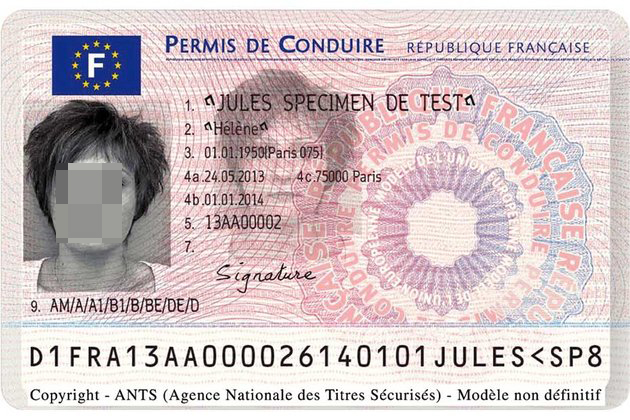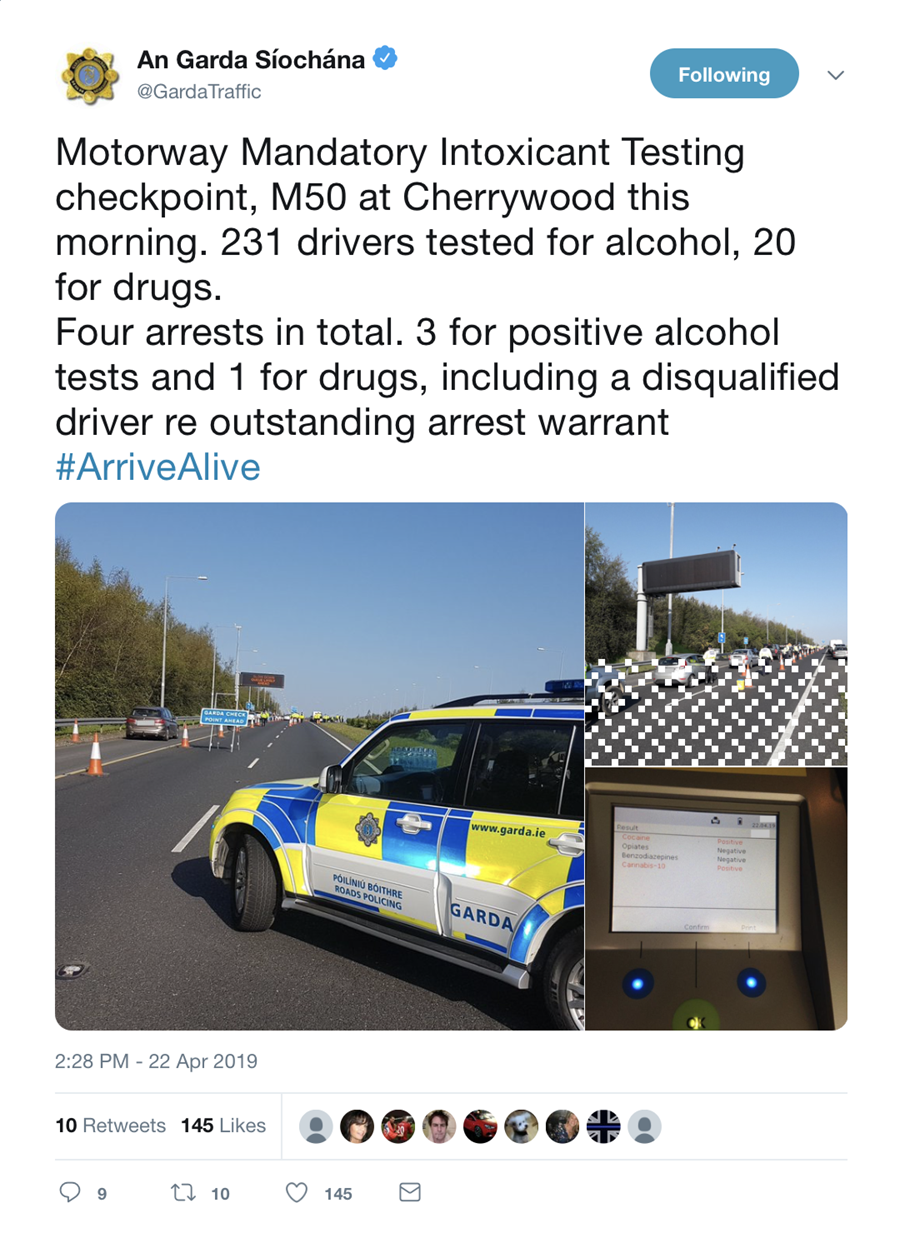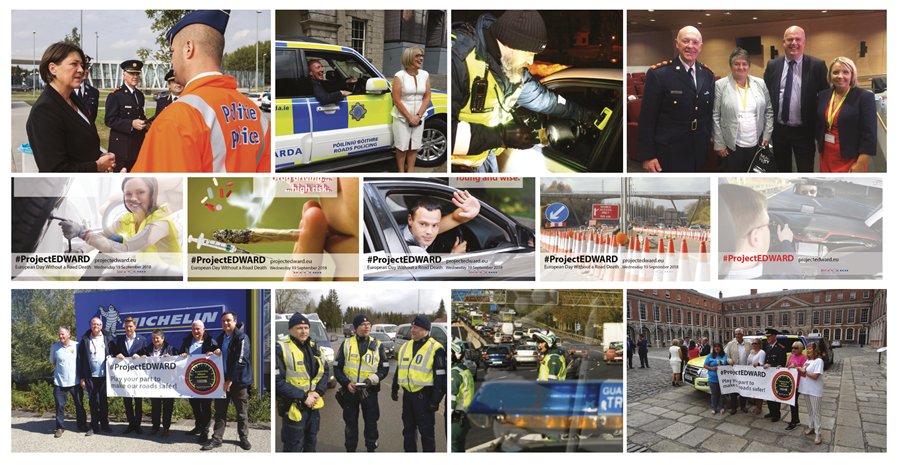

We
had a busy but highly productive time during our recent series of
meetings in Prague (9 to 11 April). Highlights of our visit included:
- Volker Orben is the new TISPOL President, replacing Paolo Cestra who held the post since October 2016. Congratulations, Volker!
- New representatives elected to serve on the TISPOL Executive Committee
- Launch of Project EDWARD 2019 with the kind assistance of Brig Gen Tomáš Lerch, head of the Czech Traffic Police

The new Executive Committee (left to right):
Aidan Reid (Acting General Secretary; Demetris Demetriou; Elvira
Zsinkai; Volker Orben (President); Sanja Veic; Paolo Cestra (Past
President and President of Honour); Egbert-Jan van Hasselt
(Vice-President).

Thursday
26 September will be a very important day in the 2019 road safety
calendar, as it's Project EDWARD... the day we have nominated
when police organisations, politicians, policy makers and road safety
groups will be aiming to deliver the European Day Without A Road Death.
Please take a look at our introductory
Project EDWARD video...
Project EDWARD video...
We
are very grateful for the support provided by Michelin, Westcotec, Road
Safety Support, Ireland's Road Safety Authority, Vitronic,
Croatia's Vehicle Center, GEM Motoring Assist, DriveTech and NFU Mutual.
If
you represent an organisation that may possibly be interested in
joining Project EDWARD as a supporter, or if you may know people who
would be interested, do make contact as we have many opportunities to
consider. Just send an email to james@projectedward.eu and we would be happy to start a
conversation.
Our plans for Project EDWARD 2019 include the following:
- A social media campaign starting 1 September, with daily activity right up until Project EDWARD day itself.
- The Project EDWARD 2019 website is now up and running. It will shortly become multi-lingual. Please support our efforts by recording a short video message of support and sharing it on social media. Encourage your friends and colleagues to do the same, as this is a great way of spreading the word.
- A resources section will be available soon, allowing you to download artwork and other useful materials that will support our awareness-raising efforts.
- A road trip departing Prague on Monday 16 September. We will stop at the Nürburgring in Germany on Wednesday 18 September and in Brussels on Thursday 19 September, before heading towards Dublin for a special Project EDWARD symposium on Thursday 26 September.
- A series of national road trips in the days leading up to Project EDWARD day, allowing you to coordinate your own series of road safety events, meetings and publicity opportunities. We will provide branded Project EDWARD decoration that can be fixed to any vehicle - and can be just as easily removed, too.
- A Project EDWARD symposium in Dublin on Thursday 26 September. This will include a live 60-minute web broadcast shared far and wide!
If you have any questions or ideas about how you can become involved with this year's Project EDWARD, please drop us an email and we will do our very best to help...
Madeira: 29 dead after tourist
coach overturns
coach overturns
At
least 29 people have died after a tourist bus overturned on the
Portuguese island of Madeira. A majority of the victims were German,
local media reported, although the nationalities of those killed have
yet to be announced officially.
Local
mayor Filipe Sousa said the victims included 17 women and 11 men. “I
have no words to describe what happened. I cannot face the suffering of
these people,” he said.
The bus was carrying 55 people when it veered off a road on a bend east of the
capital, Funchal, before rolling down a steep hillside.
European Parliament backs new vehicle safety standards

The
European Parliament has given the green light to new minimum EU vehicle
safety requirements that will come into force from 2022. The vote by
the full parliament, at its last session of this mandate, follows a
provisional deal reached by the EU institutions last month.
According
to the final deal on the legislation, new cars, vans, lorries and buses
sold in Europe will be fitted as standard with a range of new vehicle
safety features such as Automated Emergency Braking which can detect
pedestrians and cyclists, as well as overridable Intelligent Speed
Assistance. New lorries will be required to have improved levels of
“direct vision”
to give drivers a greater chance of seeing vulnerable road users such as
pedestrians and cyclists around the vehicle.
France: almost 700,000 drivers in France do not have a licence

Data released to a French radio station by road safety organisation Prevention Routiere has shown that there are currently 680,000 unlicensed drivers on French roads, representing 1.4 percent of the total.
And the total of unlicensed drivers has almost doubled in the past 10 years.
Around
two thirds of the unlicensed drivers have never even taken the test,
and it is believed that the high cost of getting a licence - around
€1,500 on average - is putting off many people from getting fully
licensed.
However,
while these unlicensed drivers represent 1.4 percent of all drivers on
the road, they are involved in 4.5 percent of fatal accidents.
Spain: police will be able to examine a driver's call history

THE
Guardia Civil’s traffic division will be able to examine a driver’s
mobile after a serious road collision.Bartolome Vargas, a public
prosecutor attached to the Supreme Court and Spain’s Road Safety
coordinator, sent out an order allowing traffic police to scrutinise
calls made and received prior to a crash.
Studies
show that using a mobile while driving increases the accident risk by
20 per cent and this now incurs a €200 fine, plus the loss of three
points from a driving licence.
Finland: young men over-represented in road fatalities
A
study by the Finnish Road Safety Council has found that young men aged
15-24 are three times more likely to die in traffic collision than
others last year.
"Young people are unfortunately disproportionately represented in car crash figures," said the council's education manager, Satu Tuomikoski.
She said that road accidents involving young men usually include the same handful of elements.
"These
crashes usually involve speeding, neglect of safety belts, inebriation
from alcohol and existing traffic violations despite the perpetrators
being fairly new to driving," Tuomikoski said.
She
added that only a small portion of young people behave dangerously in
traffic, and most young adults are stringently against driving under the
influence.
Ireland: one in five driving bans not linked to licence on database
More
than 2,000 disqualified drivers can drive without the threat of being
stopped by police because their ban has not been recorded properly on a
central database, new figures suggest.
The
numbers have raised concerns from road safety groups, which have said
that the failure to record bans is putting lives at risk.
Of
the 10,240 bans issued last year, 2,286 could not be linked to a
licence. That was up from 2,042 in 2017 and 1,685 in 2016, according to
Road Safety Authority statistics released to Tommy Broughan, the
independent TD for Dublin
Bay North, in response to a parliamentary question.
And finally, results of an alcohol and drugs test conducted by officers on a motorway close to Dublin yesterday morning...




Δεν υπάρχουν σχόλια:
Δημοσίευση σχολίου